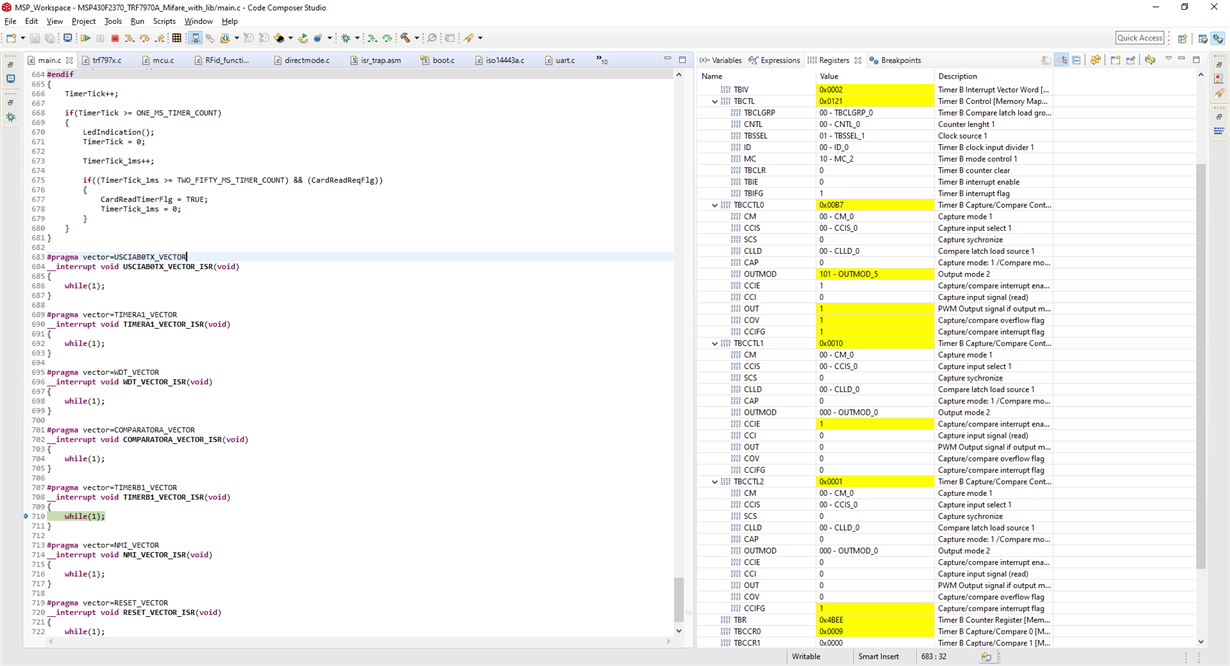Other Parts Discussed in Thread: TRF7970A,
Hi,
I am using MSP430F2370 with TRF7970A. I am using code based on sloa214.
In sloa214 TimerA0 used for RFID read APIs for timeout but in modified code we used TimerA0 for Application logic and for RFID API we used TimerB0.
So what happed when there is a failurein Mifare authentication process sometimes code jumps to ".text:_isr:__TI_ISR_TRAP" so I written all INT vector handler to get idea which INT occured so after debugging it is found that timerB1 INT Vector handler called but code get stucks there it does not return from handler.
So my question is why TimerB1, TimerB2 CCIFG set to 1 automaticaly when CCIE is set to 0 and INT handler called.
Timer B SFR Status on ISR trap and earlier status is attached in screen shot.
TBIV value changes to 0x000E.
void
McuCounterSet(void)
{
TBCTL |= TBCLR;
TBCTL &= ~TBCLR; // reset the timerA
TBCTL |= TBSSEL0 + TBIE; // ACLK (@ 3KHz), interrupt enable, timer stoped
TBR = 0x0000;
TBCCTL0 |= CCIE; // compare interrupt enable
}


